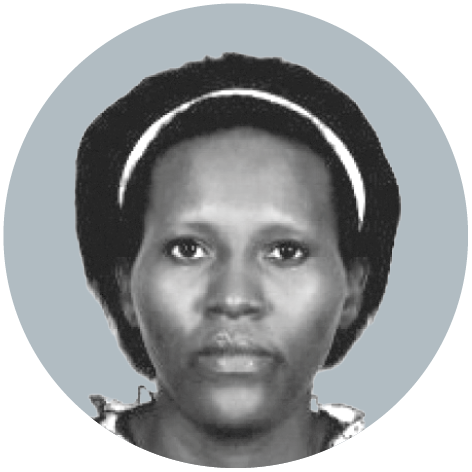Teenagers
Don’t leave sex education to internet pornography
 picture alliance/AP Photo / Stephen Wandera
picture alliance/AP Photo / Stephen Wandera
Around the world, people are becoming increasingly dependent on the internet. According to the International Telecommunication Union, about two thirds of the world population now have access to this digital infrastructure which was only created three decades ago. Commerce, entertainment, political interaction, education and socialisation increasingly depend on online information and interaction.
Pornography is an underestimated web phenomenon. Some 12 % of the world’s active websites are estimated to belong to this genre. In 2013, a Huffington Post article stated that porn sites received more monthly visitors than Netflix, Amazon and Twitter combined. Back then, of course, Netflix and Twitter were still new. But while statistical assessments vary, that old article is still being discussed more than 10 years after publication. The point is that sexual content is an undeniable feature of online life. It is readily available without serious restrictions to anyone who has internet access.
We truly live in a digital age now. What we consume online shapes our understanding, perceptions, opinions, attitudes and behaviours. That is especially true in our formative years.
Unsafe behaviour, including sexual violence
A plethora of research indicates that porn can influence sexual practices and attitudes. It potentially encourages unsafe behaviour, including sexual violence. That is not only, but especially true of young people. Sexually explicit content, moreover, is not only viewed for arousal but also as a source of information. Unfortunately, many young people around the world do not have any other source.
Researchers warn that early exposure to pornography can cause various forms of long-term harm. Adolescent pornography use is associated with early sexual activity, more partners, but lower relationship satisfaction. Porn often distorts people’s expectations, while it correlates with the acceptance of misogynism and outdated gender stereotypes.
All of this may result in dissatisfaction and may easily cause anxiety in relationships. Unsurprisingly, sexual dysfunction is sometimes linked to excessive porn consumption too.
Unintended exposure to pornography is problematic too. According to a recent essay in the Australian and New Zealand Journal of Public Health, almost half of young men (46.2 %) and more than half of young women (55.7 %) first saw sexually explicit content without intending to do so. The experience was often shocking.
Addictiveness
Such trends have sparked serious debate on what impacts porn sites have on a person’s sexual maturation, sexual behaviour and overall personality development. Like the internet, porn can prove addictive moreover, with one dependency reinforcing the other.
The solution seems obvious, right? Ban internet pornography! Well, no.
It sounds simple, but it is not feasible. Concerns about fundamental freedoms and censorship matter, but they are only of minor relevance. What is more important is that the global nature of the internet makes it impossible for any single country or even groups of countries to impose bans. And even where that is possible, it would hardly prove effective. Advancements in technology, from encrypted content to peer-to-peer or virtual private networks, thwart many such efforts to restrict access to any kind of specific content. Moreover, prohibition normally leads to the growth of unregulated black markets which are very hard to monitor.
Two-pronged solution
The solution lies in a more nuanced approach: comprehensive sex education combined with efforts to improve media literacy. Parents and schools must rise to these daunting challenges. Unfortunately, neither side can assume that the other will do a good job. Sex is a taboo in many societies, and the internet is a historically young and under-researched phenomenon.
Sex education is important because teenagers are genuinely interested in sex. They need to be told about reproductive health, but also the psychological dimensions of intimate relationships. They deserve to know that pornography basically depicts sexual phantasies, with exaggerated images and an extremely narrow focus on what, in reality, is only a small part of any real couple’s complex interactions. Only honest discussions about sexuality and relationships can foster the understanding of consent, boundaries and potential risks that young people need to take responsibility for their own wellbeing.
Media literacy, on the other hand, is essential for making informed choices online – and not only in regard to sex. Knowledge and critical thinking skills are necessary to navigate the digital landscape. Various parental controls and age-verification tools are not the solution since they can only reduce harm to a limited extent.
As a matter of fact, digital options can serve the purpose of sex education, providing a full and diverse range of information. The Global Partnership on Comprehensive Sexuality Education argues that privacy and ease of use can help overcome discomfort and shame that both learners and educators may experience. Given that porn websites generate a lot of traffic, some researchers even argue they might be good places to deliver serious sex education. So far, however, they are not.
Ultimately, a multifaceted approach that combines education, empowerment and responsible adulthood is key to addressing the complexities surrounding both sex and the internet. People with sufficient media literacy will be more likely to find the information they need, and people with sufficient sex education will be better able to make sense of porn when they see it.
Mahwish Gul is as a consultant from Pakistan who lives in Nairobi and specialises in development management.
mahwish.gul@gmail.com


